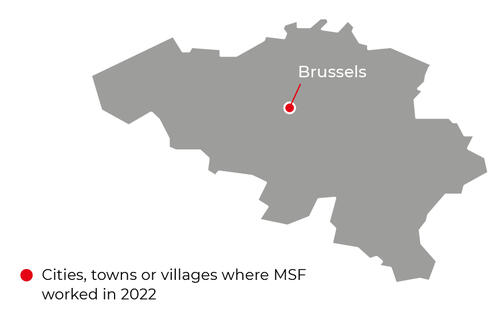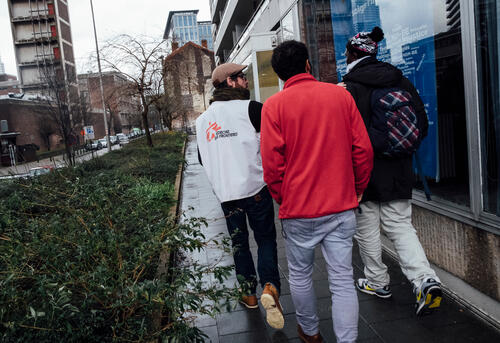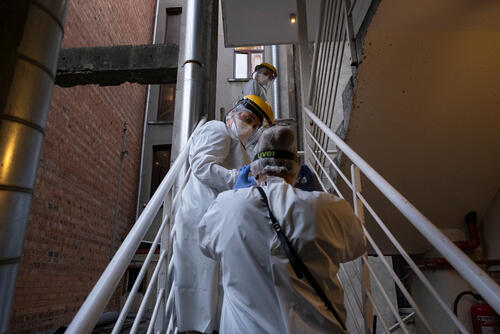For the past few years, we have offered mental health care for migrants in Brussels. Today, our psychologists offer counselling and mental health support as part of a complete package of services for migrants and refugees transiting in Belgium.
In 2021, we noticed an increasing number of unaccompanied minors left on the streets of Brussels. In October, we decided to open a reception centre in collaboration with partners. More than 300 young migrants found protection, orientation through the programme.
Following the reception crisis of 2022 and the dire situation of asylum seekers left on the streets of Brussels, we opened a mobile clinic in September, where women, children and men can access medical and psychological care.
Our activities in 2022 in Belgium
Data and information from the International Activity Report 2022.
36
36
€3.9 M
3.9M
1987
1987


4,760
4,76
130
13

Speech by MSF International President Joanne Liu to the EU high level meeting on Ebola

At EU-India Summit, European negotiators urged not to block access to affordable medicines

Social workers and psychologists vital in helping DR TB patients through treatment

Five NGOs open a camp in the heart of Brussels

Indonesian earthquake - first evaluation

'More than five million women in our waiting rooms' - as strong as they are vulnerable
MSF Belgium

Rue de l'Arbre Bénit 46
1050 Ixelles
Belgium




